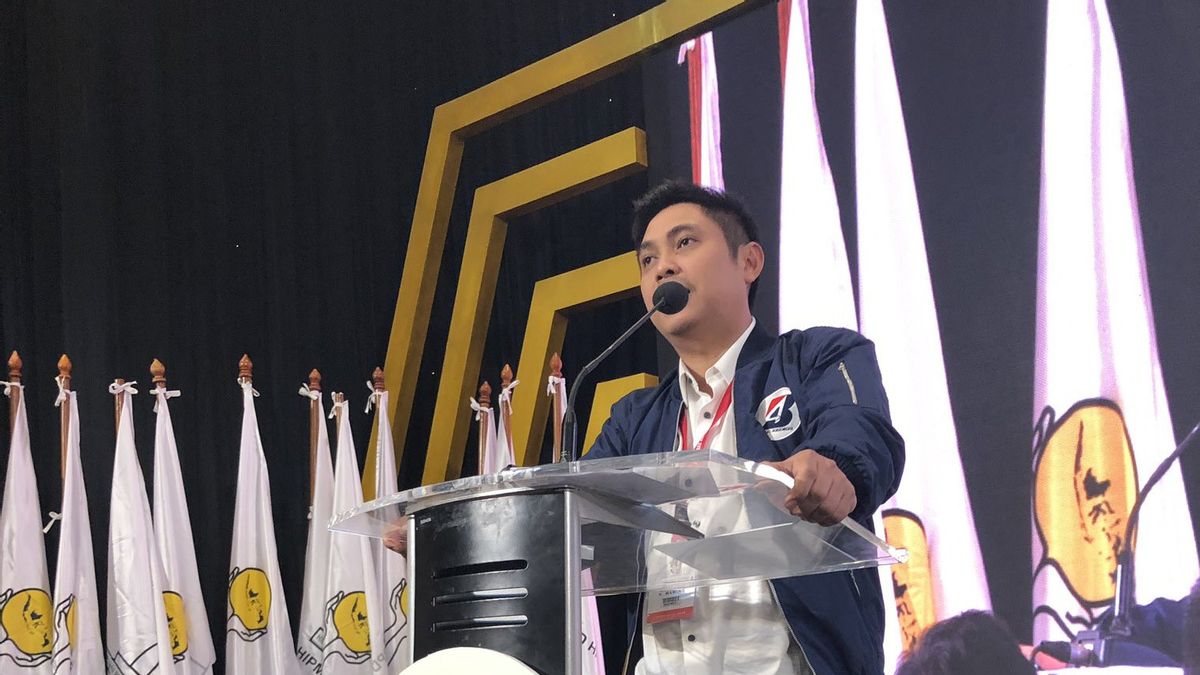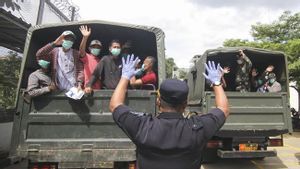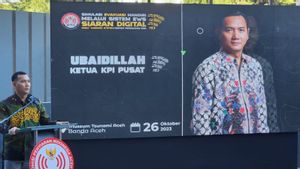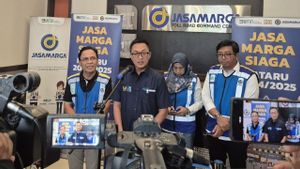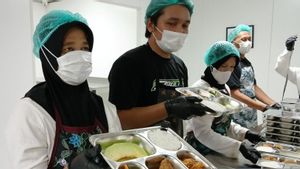JAKARTA - The government is currently finalizing the Draft Omnibus Law or the Sapu Jagat Bill. The General Chairman of the Indonesian Young Entrepreneurs Association (BPP Hipmi), Mardani H. Maming hopes that this bill will be able to resolve the disharmony of the Forestry Law (UU) No.41 / 1999 and the Spatial Planning Law No.26 / 2007.
This is because the overlapping and disharmony of the two laws has made investment slow down. Not only that, with the two laws not in harmony, Regional Heads, businessmen and investors are prone to legal problems.
"We ask that these two laws be harmonized. This is because investment is running slowly because of the problems with these two laws, "Maming said in his statement in Jakarta, Monday, January 6.
To make matters worse, said Maming, these two laws each have maps. So if the license issued to an entrepreneur or investor does not match the map in one of the laws, then the entrepreneur is often legally problematic.
"For example it does not match the map in the Forestry Law, the relevant ministries and law enforcers will bring a case against it. Even though the map is in accordance with the Spatial Planning Law, for example, "said Maming.
He said, to issue location permits, amdal, and other permits, the Governor, Regent and Minister of Agrarian and Spatial Planning (ATR) adhere to the Spatial Planning Law. So that when the Regional Head issues a location permit on a Productive Forest, it could be problematic in the future. This is because, said Maming, it is deemed not in accordance with the map in the Forestry Law.
"Regional heads can be legally problematic. This is what makes regional heads often worry about issuing permits, according to their authority, "explained Maming.
The Ministry of Forestry and Environment and law enforcement often adhere to the Forestry Law. Not only that, based on these two laws, the Ministry of Agrarian Affairs and Spatial Planning issued Business Use Rights (HGU). Meanwhile, the Ministry of Environment and Forestry issued Management Rights (HPL).
The problem is that these two rules carry their own maps, which are different from one another. "Because the two maps are not in sync, many entrepreneurs and investors are reluctant to invest. This is because the HGU could later be deemed to have violated the existing map in the Forestry Law. Can be legally problematic. So in fear. Because all the land rights are not clear. Here lies the legal uncertainty, "said Maming.
Not only entrepreneurs, regional heads are also reluctant and afraid to issue permits. This factor has made many regional heads postpone for so long in issuing location permits and IMBs for investors.
Therefore, Hipmi hopes that the Omnibus Law program will be able to solve this problem in the future so that investment will run fast. If the land problems in these two laws are not resolved, Hipmi ensures that investment will not be more accelerated.
"Because, before investing, this land problem was the first to be resolved by investors. The others just followed, "said Maming.
Moreover, according to Maming, as much as 32.6 percent of the obstacles to investment came from permits, land acquisition 17.3 percent, and regulations / policies amounting to 15.2 percent.
Previously, the Head of the Investment Coordinating Board (BKPM) Bahlil Lahaladia said as many as 1,500 ministerial decrees (SK) hampered the ease of investment. Overlapping and unsynchronized existing regulations make entrepreneurs and investors prone to being criminalized.
Bahlil Lahaladia explained that up to now the level of ease of doing business in Indonesia is at number 73 according to World Bank data. The government is trying to boost the ranking of ease of doing business to level 50. To that end, BKPM will ask for regulatory cuts in Ministries and Institutions.
"The level of ease of our investment is currently level 73. BKPM is the coordinator to improve the level of convenience. The target is at least we can be ranked 50. We will cut a lot of regulations and procedures in K / L," said Bahlil.
The English, Chinese, Japanese, Arabic, and French versions are automatically generated by the AI. So there may still be inaccuracies in translating, please always see Indonesian as our main language. (system supported by DigitalSiber.id)
